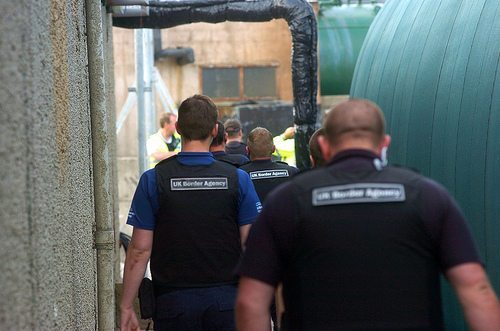Respect is crucial in the immigration debate
A recent report suggested that, by 2030, Britain will be Europe’s largest economy, outstripping even the much-vaunted German model. Inevitably, the government welcomed the news with claims that it was their policies that had set us on this path. However, there was one crucial aspect that doesn’t fit in with their narrative: our levels of immigration.
On coming to office in 2010, David Cameron pledged to get immigration down ‘from the hundreds of thousands to the tens of thousands’. This was his attempt to appear ‘in touch’ with many working-class people who had felt affected by the very high levels of immigration from Eastern European nations admitted to the EU after 2005, notably Poland.
Concern centred around a few issues: employment, housing, and social services. Whilst superficially these concerns might appear to have merit, a lot of the claims made by politicians, exploiting these fears, had no basis in fact.
First, the old chestnut: ‘immigrants will take our jobs’. Wrong. Unemployment stayed at roughly the same level until the financial crisis, and immigration actually created a multiplier effect: the £2bn extra put into the economy by the migrants encouraged employers to take on more people from home and abroad. Whilst it is an easy assumption to make, more people does not mean fewer jobs, as the job market is dynamic.
Second, housing. False claims that immigrants were given priority in social housing percolated the national conscience. It wasn’t true for one simple reason: social housing rules apply the same to all EU workers no matter where they come from. There was already a severe shortage of houses and that was the government’s fault, not immigrants.
Third, social services. In an apparent contradiction to the first point, many people believed the myth that Eastern Europeans would turn up in Britain and immediately sign on the ‘generous’ dole. There has never been any evidence for this, and indeed a recent study showed that migrants were actually 45 percent less likely to claim benefits than the natives. Similarly, this government has engaged in the dangerous untruth that foreign workers and visitors are a drain on the NHS when they are again net contributors, introducing charges for foreign nationals that could spread disease by discouraging them from seeking treatment.
Despite all this, however, many politicians and commentators on the left have failed understand that many working-class people do not know the realities of the situation. Well-off and based primarily in London where constant flux is a part of life, they have sneered at anyone who even asks why the situation is the way it is, and have insulted the very people they should be helping, with the predictable shout of ‘Racist!’ whenever an ordinary person, blinded by right-wing media spin, asks about what is going on in their communities.
The worst example of this occurred in the 2010 election campaign when Gillian Duffy, a lifelong Labour voter from Rochdale, met then-PM and Labour leader Gordon Brown. Duffy’s inarticulate question to Brown – ‘where are these Eastern Europeans flocking from?’ (Answer: Eastern Europe) – did not deserve Brown’s claim, picked up by a stray microphone, that Duffy was a ‘bigoted woman’. Brown had completely missed the point.
Because we need immigration to strengthen the economy, we owe it to ordinary people to be respectful and fair when explaining the situation. Halting immigration, as the BNP and UKIP would do, would be an economic disaster, and creating a hostile environment for foreigners with the likes of the Home Office’s racist ‘Go Home’ vans, is not the answer either. A better approach involves tackling the people who exploit immigrants, not demonising or sending home the workers themselves. Whilst the minimum wage stopped most of the wage depression that could have happened, there were isolated abuses and so policies like bigger fines for not paying the correct rate, and tightening up rules on gangmasters, recently proposed by Labour, are welcome. It’s true there aren’t enough houses – but that’s not because immigrants are filling them, it’s because government hasn’t built any for 30 years. We need at least 200,000 a year up to 2020.
It will not be easy keeping a healthy flow of migration, reassuring local populations, solving the few problems that do occur, and refuting tabloid lies. But it must be done, as working people deserve better than what they get now –condescension and being called bigots and racists.

Comments